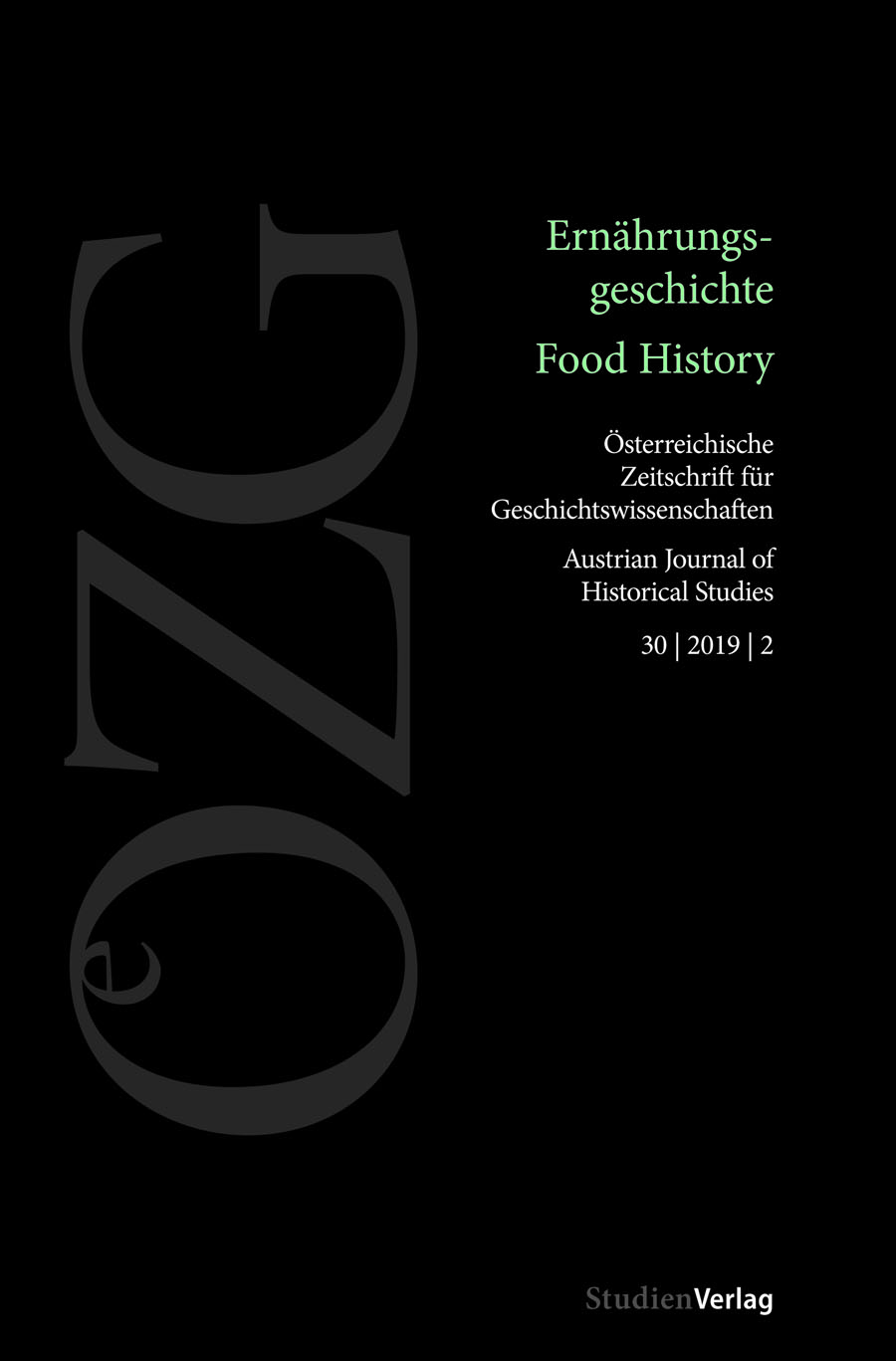„Das Ringen des Freihandels mit dem Prohibitivsystem“
Politische Ökonomie und Infrastruktur der Brotversorgung Wiens, 1815–1847
DOI:
https://doi.org/10.25365/oezg-2019-30-2-4Schlagworte:
urban history, trade regimes, food supply, 19th century, Karl Polanyi, retail infrastructureAbstract
Historians concerned with topics of urban, food, retail, and political history have long argued that ideals of political regulation decisively influence and shape urban food distribution systems in European and American cities. For example, researchers have been able to show that throughout the late 18th and mid-19th centuries, in cities like Paris, Mexico City, New York, and Manchester, surprisingly similar discussions were taking place about the regulation and liberalisation of bread and meat production, and their related distribution systems. The article engages with this international discussion by arguing that these debates represent a kind of “double movement” between regulated and self-regulated markets, as outlined by Karl Polanyi. It then raises the question of how urbanisation and political regulation affected the food supply system of the city of Vienna during the Vormärz period (1815–1847). By cartographically analysing the topographic development of bakers within and around the urban area, the article concludes that political-economic and demographic factors led to the creation of two distinctive, competing, and simultaneously complementary systems of bread supply during the first half of the 19th century.
Downloads
Veröffentlicht
Zitationsvorschlag
Ausgabe
Rubrik
Lizenz
Copyright (c) 2019 Jonas M. Albrecht

Dieses Werk steht unter der Lizenz Creative Commons Namensnennung 4.0 International.


